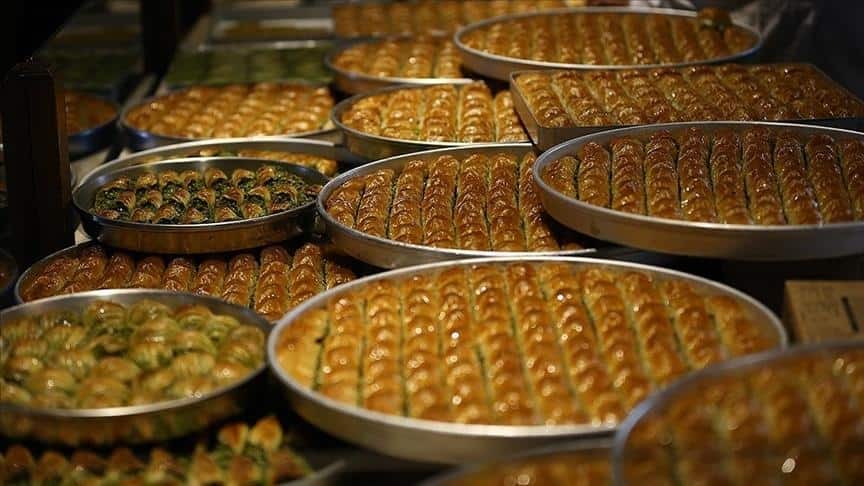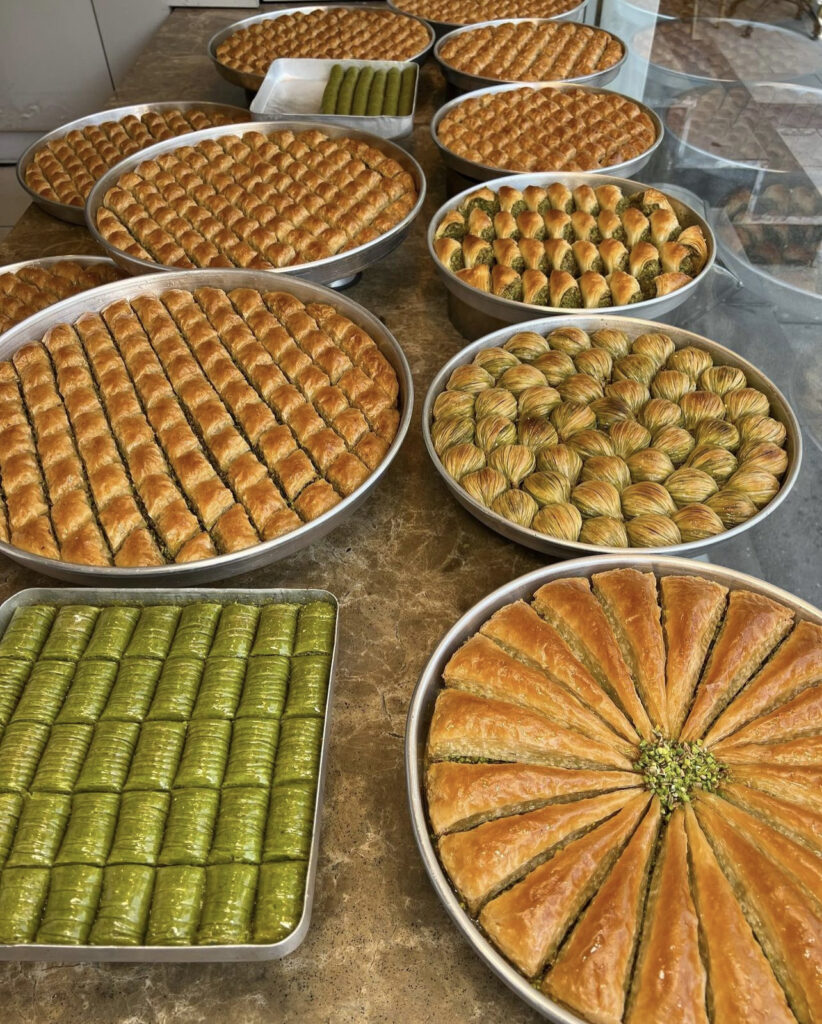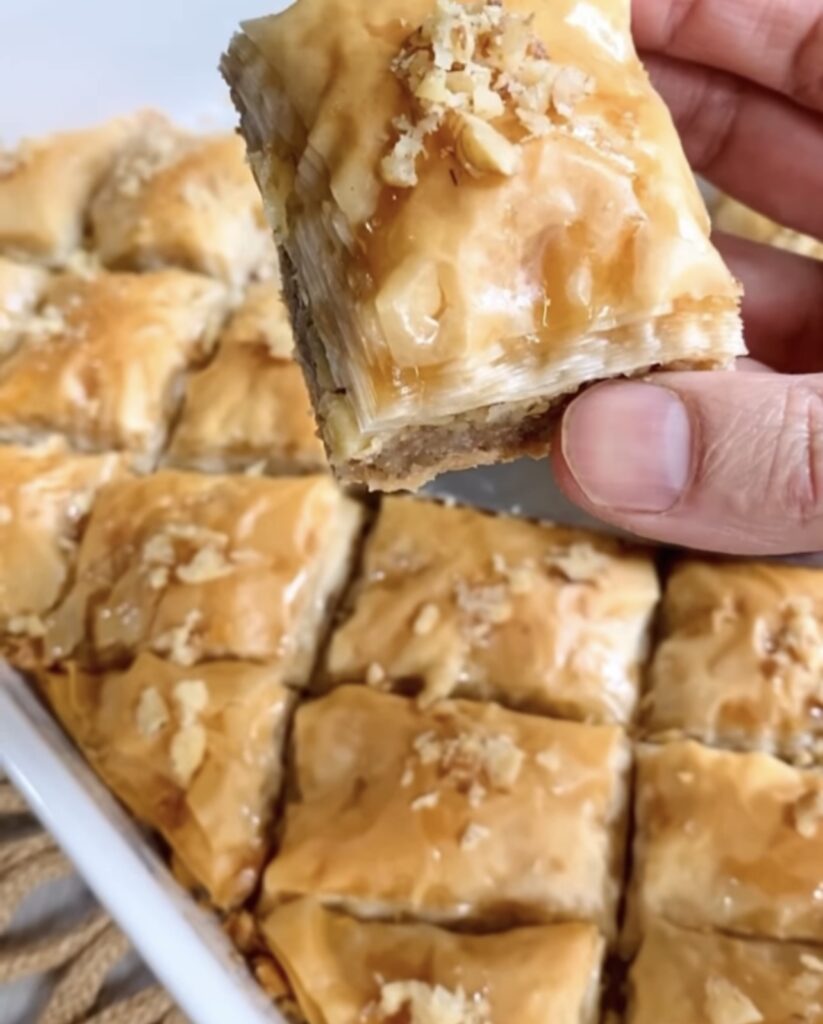Baklava, a delectable dessert with layers of delicate phyllo pastry, rich nut fillings, and a sweet honey or syrup coating, holds a special place in the hearts and palates of both Turks and Greeks. However, the precise origins of this beloved treat have sparked an enduring debate between the two nations.
A recent survey conducted in Greece and Turkey has shed light on the differing opinions and preferences surrounding baklava, igniting discussions about its history and cultural significance.
Survey Reveals Shared Appreciation
The survey, conducted between June 14 and 16, highlighted the mutual love for baklava among Turks and Greeks. Overwhelmingly, more than 95% of Turks surveyed claimed baklava as their own, while over two-thirds of Greeks argued that it belongs to their culinary heritage. Interestingly, one-third of Greeks acknowledged its Turkish origins, recognising it as a shared delicacy. These survey results underscore the universal appeal and widespread presence of baklava in both Mediterranean and Middle Eastern cuisines.

Baklava Origins: A Mysterious Journey
Unravelling the origins of baklava proves to be a challenging task, as its history is shrouded in mystery and subject to differing historical narratives. Both Greece and Turkey boast a rich culinary heritage, contributing to the development and evolution of baklava over the centuries.
Ancient Greece and Ancient Rome
The earliest known ancestor of baklava can be traced back to the Ancient Roman placenta cake, which consisted of alternating layers of thin pastry, cheese, and honey. The resemblance to modern-day baklava is striking, suggesting that the roots of this delightful dessert can be found in both Ancient Greek and Roman traditions. Some historians argue that the placenta cake evolved from a Greek pastry mentioned in Homer's Odyssey, indicating a possible Greek influence on its creation.
Medieval Turkish Customs
An alternative perspective suggests that baklava's lineage can be traced to medieval Turkish customs. In the 11th century C.E., nomadic Turks are believed to have practiced layering bread, which eventually evolved into the technique used in baklava. However, these early iterations of layered bread did not resemble the sweet pastry we know today.

Ottoman Empire and Refinement
The form of baklava we recognise today is often attributed to the Ottoman Empire. Suleiman the Magnificent, a 16th-century sultan, played a significant role in popularising and refining baklava. During Ramadan, Suleiman initiated the tradition of gifting trays of baklava to Janissary regiments, further cementing its place as a cherished delicacy. This aligns with the fact that baklava became an integral part of Ottoman cuisine and was enjoyed by both Turks and Greeks.
A Shared Culinary Heritage
Despite the debates surrounding its origins, baklava holds a ubiquitous presence in Mediterranean and Middle Eastern cuisines, transcending national boundaries. It has become a symbol of cultural exchange and shared culinary heritage between Turks and Greeks, as well as other nations in the region. The survey results highlighting the preferences for different nut fillings between the neighbouring countries only serve to reinforce the diverse and evolving nature of baklava.

Baklava, with its delicate layers of pastry, sumptuous nut fillings, and luscious honey or syrup coating, is a dessert that unites Turks and Greeks in their shared appreciation for this culinary masterpiece. While the exact origin of baklava remains a subject of hot debate, its enduring popularity and widespread presence across the Mediterranean and Middle East reflect the cultural exchange and cross-pollination that have shaped its evolution.
Rather than focusing on exclusive ownership, the diverse variations and interpretations of baklava could be celebrated as a testament to the rich culinary traditions of both Turkey and Greece. So, whether you prefer it with walnuts or pistachios, indulge in the delight of baklava and savour the harmonious blend of flavours that bring people across borders together.
Read also Greek Coin Smuggler, Dealer of 'World's Most Expensive Coin' Arrested for Grand Larceny in New York


